Inspiration
The Bongo boy in America
Written by Manasseh Azure Awuni, November 2014
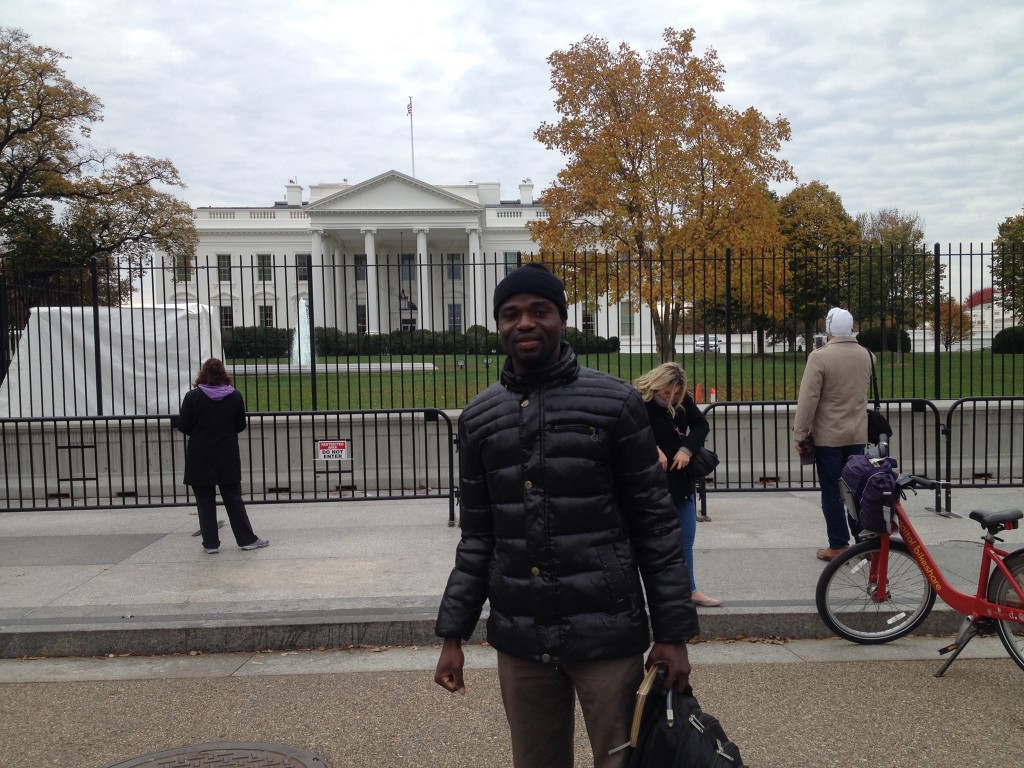
At long last the wait has ended. And the boy from Bongo is in the United States of Obamaland. Hurraaah!
Oh, did I hear someone ask whether this is news? Yes, it is. Why not? Maybe to you, travelling to the United States is no news. Maybe you frequent the US like Koo the trotro driver frequents Odorkor and Kaneshie. So to you this is not news. You go there to shop. You spend your vacations there. And your children may spend the Christmas holidays there. So, to you, it’s no news. But to the Bongo boy, it is big news. This is his first time.
And you must not begrudge him or call him names when he celebrates his first visit to the most powerful nation on earth. He is not one of those who sees such feats as a normal routine in life, especially the purpose for which he is there. He is one of those who sees it as more of the inexplicable grace of the Almighty God, than any personal achievement.
See, sometimes it’s not about the height one attains in life that is the story, but where one started the seemingly hopeless journey. When the Frankfurt-bound Luthansa Flight 567 shot into the dark sky of Accra that Friday night, my mind went back to the beginning of my journey.
It was somewhere in 1990, a sunny day. I don’t remember the day and month, but I remember the rest of the journey and the circumstances surrounding it as vividly as the day a decent woman breaks her virginity. It was the first time I sat in a motor vehicle. And that was a whole world of experience, far different from the rides in donkey carts I had been used to up to then. The trees were running as my dizzying eyes looked out of the windows of the rickety Datsun to catch glimpses of the new environment outside Bongo Beo. With my twin sister, I was headed for Kete-Krachi with the late Mr. Ayenfii Abugre, a labourer with the Roads and Highways Department in the peninsular district.
We were told that our father, who had left Bongo to work as a farm labourer in Kete-Krachi had secured “government work” and we were joining him. He had been employed as a night watchman of the Krachi government hospital. I would later realise that it was not a glamorous “government work” but it paved the way for the most important journey of my life: the journey from Bongo to Kete-Krachi. And that was how the journey to Obamaland actually began.
Growing up in Kete-Krachi, the thought of travelling outside the country was beyond my wildest imaginations. We only joked about it. I remember how, after a heated debate about the destination of the night planes which flew over Kete-Krachi, I would joke to my brothers about being in one of the flights one day.
“When I fly and get to Lakeside here,” I told them, “I will open the window of the plane and shout out to you: ‘Atubire! Agambila! Aboyinga! Nkenge solmitinga ge wa’na ya!’” (Atubire, Agambila and Aboyinga [my brothers], I am going to the white man’s land and will be back).
Motivational speakers would tell you that if you dream it you can achieve it, but in my case, it wasn’t a dream that would lead to the achievement of any goal. Though I said it, I was convinced that there was no way I would ever travel in a plane. Travelling to Accra constituted the height of my wildest ambition. And there was a good reason for this. Poverty has a way of crippling initiatives, paralysing hopes and killing all dreams.
Two years ago, I was part of the Presbyterian Students In Church Evangelism (P-SICE) programme in the Eastern Region. On the Wednesday of the one-week programme, we went on school evangelism at Old Asuoyaa. When I asked the pupils I was preaching to about their ambitions in life, a boy said he wanted to become a doctor but because his father was a poor farmer there was no way he could become one. I tried to encourage him but judging from how seriously he said it, I doubt if I made the needed impact.
I used to think like him. And it is because of people like him I write pieces such as this, once in a while, to tell them it is possible. I didn’t know I would ever go to the “White man’s land” because until I went to the boarding house in SHS Two, I hadn’t slept ever on a mattress. Even a mat was a luxury. Anytime drugs were brought to the hospital and discharged, my father brought the cartons home and we jubilated anytime new cartons arrived. Unfortunately, they didn’t last long because our thatched roof leaked. It was in the boarding house that I first used tooth paste and brush.
Pepper sauce or “shito” was too expensive to afford so I didn’t take it to school before I completed Krachi Senior High School in 2004. I didn’t own a text book until I got to the tertiary institution. I could not go to the senior high school of my choice and before I wrote my WASSCE in 2004, I was clear in my mind that either the polytechnic or teacher training college was the highest level I could attain because there was no money to go to the university or study for a degree.
So how on earth was I going to nurse the ambition of going to the White man’s land when even Accra was a seeming impossibility. So I only joked about calling out to my brothers from the plane. I didn’t mean it.
But on November 14, 2014, however, I was on my way to solmitinga on the invitation of the American government to participate in the International Visitor Leadership Programme on Investigative Journalism. We are 21 participants from 21 countries across the world. And I am the only one from West Africa. The letter from the US Embassy in Accra stated that “participants in the International Visitor Leadership Programme are selected from those who have contributed to their society and their country, and have the potential to make even greater contribution in the future.”
I must, however, say this is not the first time I am visiting the white man’s land. In 2012, I went on a sponsored trip to South Africa (to me, it was solmitinga) after I won the Most Promising Journalist of the year. In 2013, I was in Germany for a seminar. In fact, this was not supposed to be my first US trip.
When I won the Journalist of the Year in 2012, the prize package included a six-week trip to the US, but I declined that offer. I was then a freelance journalist, and getting the equipment I needed to work was my challenge. I said instead of sponsoring me to the US, Uniliver Ghana Limited should use the prize money to buy equipment for me to work.
“If I get the equipment and work harder, I will get such trips in the future for the same training and exposure” I told my friend Abubakar Ibrahim, who accompanied me to Tema to tell Uniliver that I wanted to break the long tradition of Journalists of the Year embarking on a trip to the US. This time I spoke with faith.
“What if they insist that you go?” Abu asked.
“Then I will reject the prize package,” I told him. And I was prepared to do just that and nothing under the sun would have convinced me to go the US instead of a package I considered more useful to my career. But management of Uniliver said what I suggested was very thoughtful, so they readily accepted the suggestion.

But finally, the Bongo boy is in America. The three week intensive, educative and enlightening programme that will take me to five states in the United States has been very useful even though I am yet to complete it. From Accra to Frankfurt, I connected to Washington DC, where the programme started. From Washington DC, my fellow participants and I flew to Chicago. From Chicago, we embarked on a one-day train trip to Milwaukee in Wisconsin State, where the boy from the Savannah region of Ghana experienced the first snow fall of his life. I now understand why Students Companion taught us to say “as white as snow.” But I insist, my fellows who are yet to come to solmitinga should stick to Kwakuvi Azasu’s version: “as white as the foam of fresh palm wine.” That makes much sense in the mind’s eyes of our students.
We arrived here in Texas, the Lone Star State, last Tuesday and this morning, we are flying to Dallas, from where we will connect to Tampa in Florida State. We have visited newsrooms, had meetings with investigative journalists from the Washington Post, Washington Times, Kxan TV, among others. We have interacted with civil society groups as well as received tutorials on the American system of government. We have visited journalism training institutions such as Marquette University in Milwaukee, Northwestern University in Chicago and the University of Texas in Austin, Texas.
Say the boy from Bongo is enjoying and I won’t dispute it, except to add that the meetings can be stressful at times. I was told it would be a tightly packed programme. I have had VIP treatment right from the American Embassy in Accra, at the Dulles Airport in Washington DC, where I was met by a US Department of State official. Yours truly jumps from one luxurious hotel in Obamaland to the other.

The only minus is the food. Apart from the Thanksgiving Day turkey dinner with Julie Van de Zande and her family, if I say I enjoy American food, then I’m telling a lie. It will take years for a tongue that is so used to banku or tuo zaafi with okra soup to develop the appetite of a ruminant. The salads and green vegetables are not my idea of food, I am afraid.
From what I have seen so far, America is a great nation. It’s a land of opportunities, the unanimous chorus the Ghanaians I meet here sing. America is not perfect but systems here are working. In the coming weeks, you will have more than enough to read.
The American government is generous. It has given participants the opportunity to extend our stay for up to 30 days after the end of the programme. Many friends here, including an old student of Wesley Girls who is not very old, have expressed their readiness to host me should I decide to stay. But I am not spending one day here after the programme. America is not my home. Ghana is my motherland. There my heart, soul and destiny lie. I have to go back home to help build my nation. America is what she is today because some selfless people sacrificed and laid down their lives to build the strong nation it is.
My coming here has strengthened my resolve to help make Ghana work again. So I am going back home. God did not make any mistake by making me a Ghanaian
I have visited many historical sites and museums, particularly the White House, the Abraham Lincoln Memorial and the Capitol Hill among others. I haven’t seen Obama but I saw John Mccain in the Senate. My highest point, however, was when I stood at the exact spot my inspirer, Martin Luther King Jr., stood and made the famous ‘I Have a Dream’ speech.
As I stepped away from where Martin Luther King Jr. stood, and made my way down the 57 steps (representing Lincoln’s 57 years on earth) I muttered to myself that I had a dream. I have a dream that one day, greed, corruption and bad governance will be overthrown by men and women with conscience so that the people of Ghana, my beloved country, will live decent lives.
If the hopeless kwashiorkor boy from Bongo can come this far, then everything is possible under the sun.

-
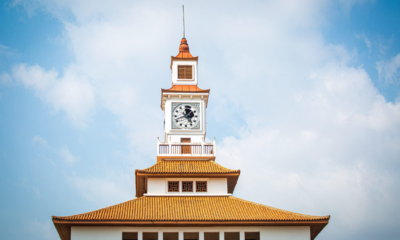
 Random Thoughts10 months ago
Random Thoughts10 months agoA Dutch Passport or a Ghanaian PhD?
-

 Foreign News10 years ago
Foreign News10 years agoEvery Animal Meat Is Not Beef! See All Their Names
-
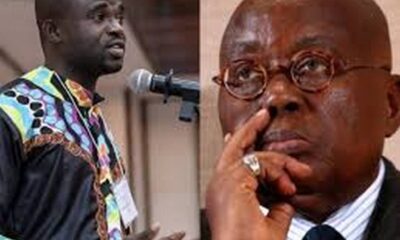
 Manasseh's Folder12 months ago
Manasseh's Folder12 months agoManasseh’s Praise and Criticism of Akufo-Addo’s Action on the SML Scandal
-
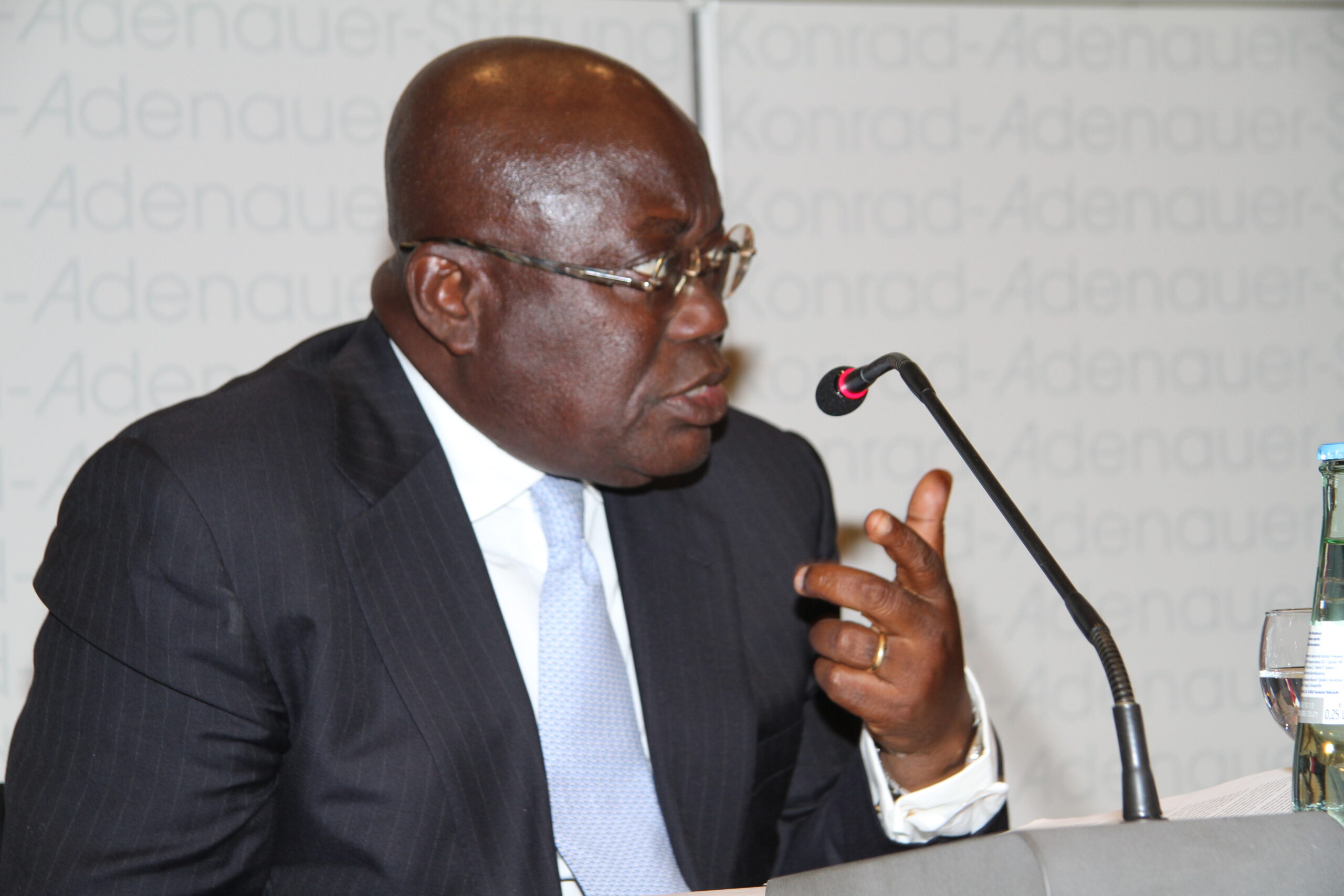
 Guest Writers9 years ago
Guest Writers9 years agoProf. Kwaku Asare writes: Nana Akufo-Addo has no law degree but…
-
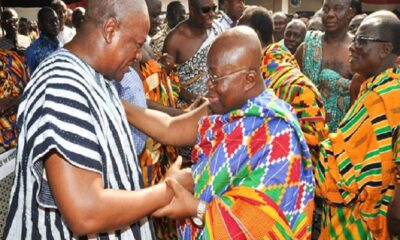
 Manasseh's Blog Posts9 months ago
Manasseh's Blog Posts9 months agoWho Started Free SHS?
-
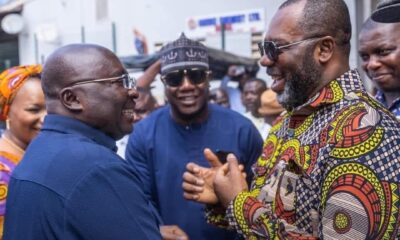
 Manasseh's Folder9 months ago
Manasseh's Folder9 months agoIs Napo Arrogant? And Does It Matter?
-
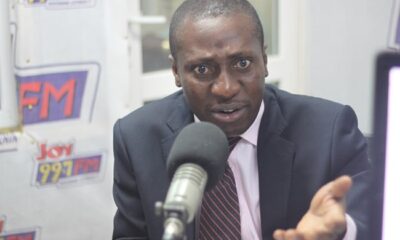
 Anti-Corruption9 years ago
Anti-Corruption9 years agoMANASSEH’S FOLDER: Unmasking Afenyo Markins, NPP’s apostle of integrity
-
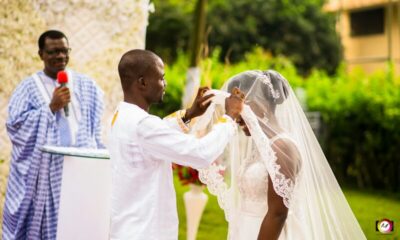
 Manasseh's Folder9 years ago
Manasseh's Folder9 years agoEXCLUSIVE PHOTOS: Manasseh Azure Awuni marries “Serwaa”